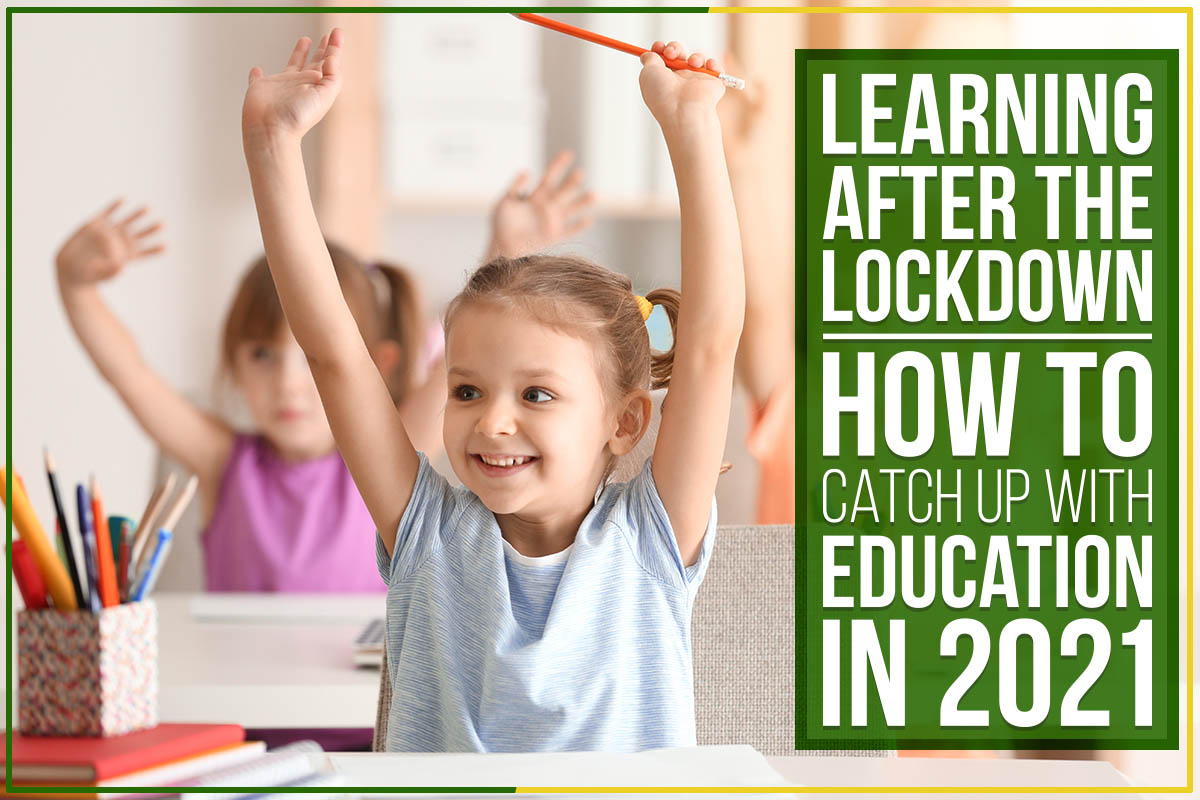Learning After The Lockdown: How To Catch Up With Education In 2021

The effects of the pandemic on learning continue to worry institutions and individuals alike. This is especially true for kids at the primary level. Children are developing basic competencies at this level, which sets the stage for future life opportunities. And yet primary level skills, especially math and reading, are the easiest to lose when school is interrupted.
Likewise, these skills are the hardest to regain, even when school restarts. Merely opening schools is not enough; there’s much that needs to be done. For instance, schools should provide remedial classes and additional time to complete the curriculum. Other possible catch-up strategies include:
- Online remedial tutoring
- In-class remedial sessions
- Videos and podcasts to cover topics
But even as schools provide online lessons and resources, parents need to go the extra mile to help their kids derive the maximum benefit from remote/hybrid learning.
At Mrs. Myers' Reading Room, we offer interactive programs for developing readers in Wisconsin and across the US. Click here to sign up for a free trial.
The first wave of coronavirus didn’t give you enough time to prepare, but here’s how you can help your child catch up with her education in 2021:
Set Routines
Online learning keeps students safe, but it cannot provide structured learning like a classroom environment. Parents should look for ways to create routines that allow students to stay organized and engaged. Here are some tips to set routines:
- Fix sleeping and wake up times similar to a regular school year
- Impose a downtime or screen curfew after 8 pm - 9 pm, after which no screens should be allowed
- Mark the calendar for school opening dates, exam dates, etc.
You should also ask your child what kind of routine she will prefer during this school year.
Set Goals
Lack of structure and uncertainty take a toll on your children’s mental health. This is why you should set short-term goals to help them feel a sense of accomplishment.
Write down daily or weekly goals and put them where the child can see. These can be as simple as completing a chapter from a book or learning a new table. And don’t forget to encourage your child and celebrate her success.
Boost Social Connections
Isolation is detrimental to children’s early learning. So encourage your child to stay connected with friends and peers online. If she is starting a new class, reach out to the parents of the new classmates and find ways they can get to know each other, just like they would at school.
Use Learning Activities
Along with their school curriculum, parents can also keep kids engaged with learning activities that also focus on wellbeing. Examples include:
- Spending a few minutes every day to ask your child to share how the day was
- For kids with more advanced writing skills, journaling is also a good way to express emotions
- For a child learning to read, find books, or recount traditional folktales focused on overcoming tough times
- Ask your child to calculate grocery bills, recipe ingredients, etc. and engage in other activities that include numbers
You can also try games that incorporate an element of learning (word puzzles, quizzes, treasures hunts, etc.)
Find A Tutor
Currently, it’s a challenge for schools to cater to students with special needs. In such cases, parents can turn to interventionist tutors (learn more in this blog).
Seek Digital Solutions
Finally, supporting children’s education can be overwhelming for working parents and caregivers. Seek digital solutions catered to children’s early learning in a way that makes use of their natural energy and curiosity.
At Mrs. Myers' Reading Room, we are already providing such digital solutions to children in Wisconsin and across the country. We offer programs for children learning to read, math resources, and interventionist tutoring for all subjects. Click here to sign up for a free trial.




